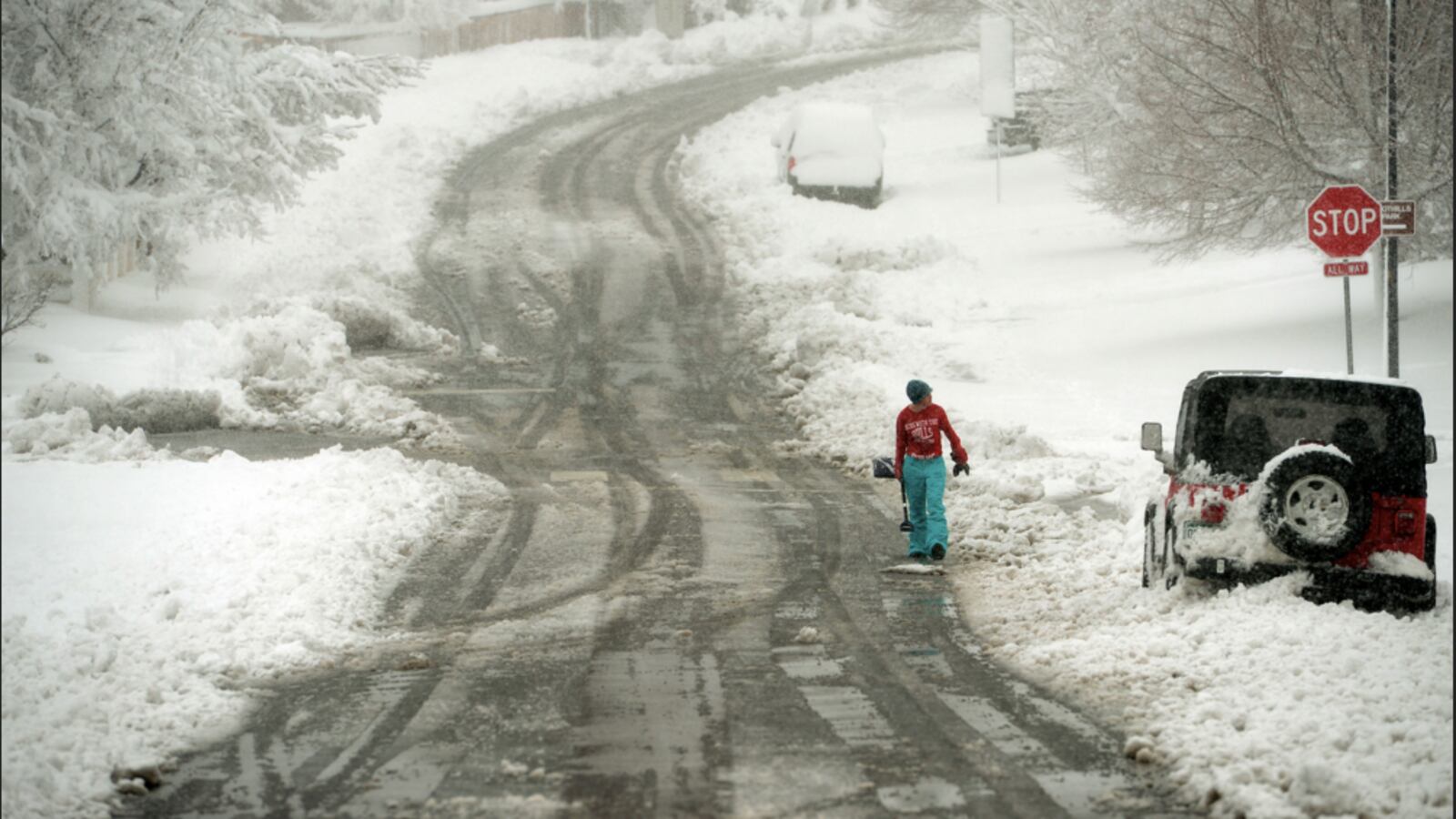If snow days are cause for cheering and hot cocoa among school children, they can be headache-inducing for school district leaders trying to balance safety with the prospect of lost instruction and upset parents.
For some Front Range school districts, last week’s back-to-back school cancellations were no exception.
Susana Cordova, Denver Public Schools’ acting superintendent, joked about the Catch-22 last Friday in an email newsletter with the subject line, “Snow Days: Proof We Can’t Please Everyone.”
Cordova included a sampling of parent reactions to the week’s snow day decisions, ranging from “dumb” to “Great call! It’s awful outside.”
If more parents are angry about snow days than usual, it’s no coincidence. Five years of data compiled by Chalkbeat shows that Denver and a few other large districts have closed schools a record number of times this year for weather-related reasons. Some schools now must add instructional minutes to meet state requirements.
Even when there’s no need to make up lost days, the court of public opinion has plenty to say about snow day decisions. Parents across Colorado vent about hazardous commutes when schools stay open in bad weather. Others pounce when they feel schools have been closed too hastily.
. @DPSNewsNow @ColoradoDOT are you serious? #noschool again. #FAIL My kids won’t be going to the “make up” days. #getyouracttogether — Chandler Snyder (@chandlersnyder) March 24, 2016
“If they see something outside their window that doesn’t mesh with the decision we made, that’s when we get some irritated comments,” said Danielle Clark, executive director of communications for the Poudre School District, which has had three snow days this year.
“The ironic part of it is, on social media, sometimes you’ll have parents going after each other,” Clark said. “They kind of fight the battle for us.”
While snow day calls aren’t made lightly anywhere, that’s particularly true in districts with many poor students who rely on schools for more than education. That’s the case in both Denver and Aurora, where about two-thirds of students are eligible for free or reduced-price meals.
“It weighs heavily on my mind,” said Aurora Superintendent Rico Munn. “A snow day means something dramatically different for a segment of our students.”
Alex Renteria, a DPS spokeswoman, echoed Munn in an email to Chalkbeat.
“Many of our families depend on DPS being open every day, not just for education, but also for nutrition, health care and other important services,” she wrote.
Tough decisions don’t end once snow days are called —often by about 5:30 a.m. after drivability tests, checks of school grounds and phone calls with city, county and sometimes state officials.
There’s still the question of how to handle lost instructional time.
Most districts build three to four extra school days into their calendar as a cushion against weather-related closures. That leeway is gone for some districts that have racked up too many closures or delayed starts this year.
In Colorado Springs District 11, which has had five snow days this year, middle schools will add five minutes to each school day through the end of the year, said Devra Ashby, the district’s director of communications.
“We feel better about adding those five minutes than adding a day when people might not come anyway,” she said, explaining that prolonging the school year can interfere with summer plans.
Because of differing state requirements and bell schedules, the district’s elementary and high schools won’t need to add any additional time, Ashby said.
In Adams 12, which has had four snow days this year, some elementary schools will start 10 minutes earlier for the rest of the school year. In addition, two days scheduled for assessments and teacher training will be repurposed for classroom instruction. No changes will be made at middle and high schools.
@Adams12 how many RTs to not add two extra days of school at the end of the year? — Mikayla Ruest (@mikayla_ruest) March 24, 2016
Even in Jeffco Public Schools, which was on spring break during last week’s storm and has had just two snow days this year, a teacher work day in May is being redesignated as a day of instruction.
Terry Elliott, Jeffco’s chief effectiveness officer, said snow days often come as classrooms are tackling the most difficult subject matter.
“We’re in the thick of pushing deeper content,” Elliott said. “It’s more complex material, getting students ready for the (next) year.”
District officials in Aurora and Cherry Creek, both of which have had five snow days this year, said they haven’t decided yet whether to add additional time to the school year. In Denver, where there have been four snow days, officials said they don’t anticipate having to add extra time this year but are double-checking with all schools to make sure.
Districts that don’t meet state minimums for school hours or school days because of weather closures, can also seek a waiver from the Colorado Department of Education’s School Finance Unit.
Even when snow days or other weather-related closures don’t require added time to meet state mandates, educators still have to figure out how to compensate for lessons lost to unexpected days off.
“We leave it up to the professionals in the classroom to figure out how to encompass that material in the next day’s lesson,” Clark said.
Elliott suggested that teachers should have fluid lesson plans this time of year.
“Worst case scenario, you might drop an activity to keep moving forward,” he said.
Chalkbeat Bureau Chief Eric Gorski contributed to this report.

